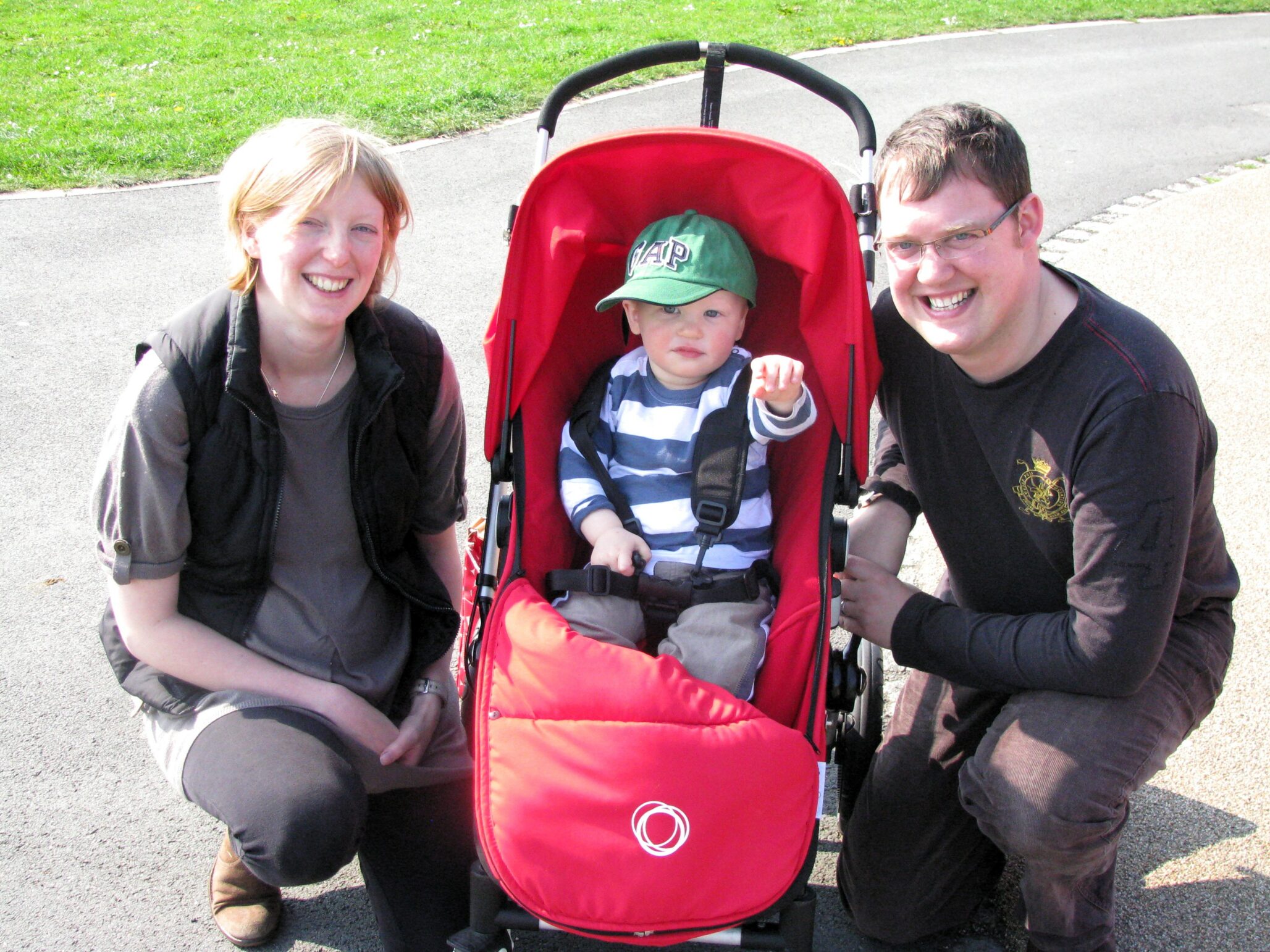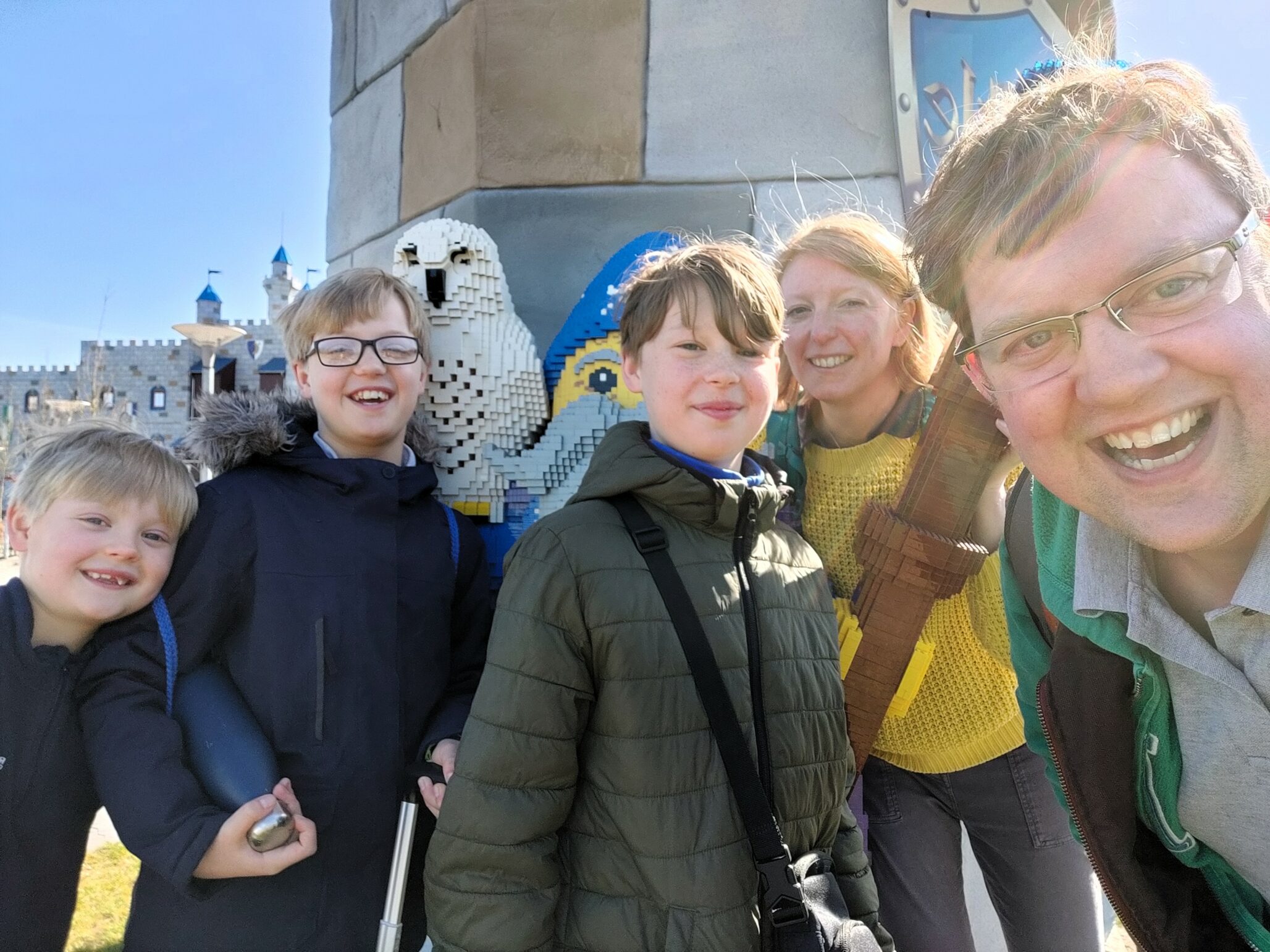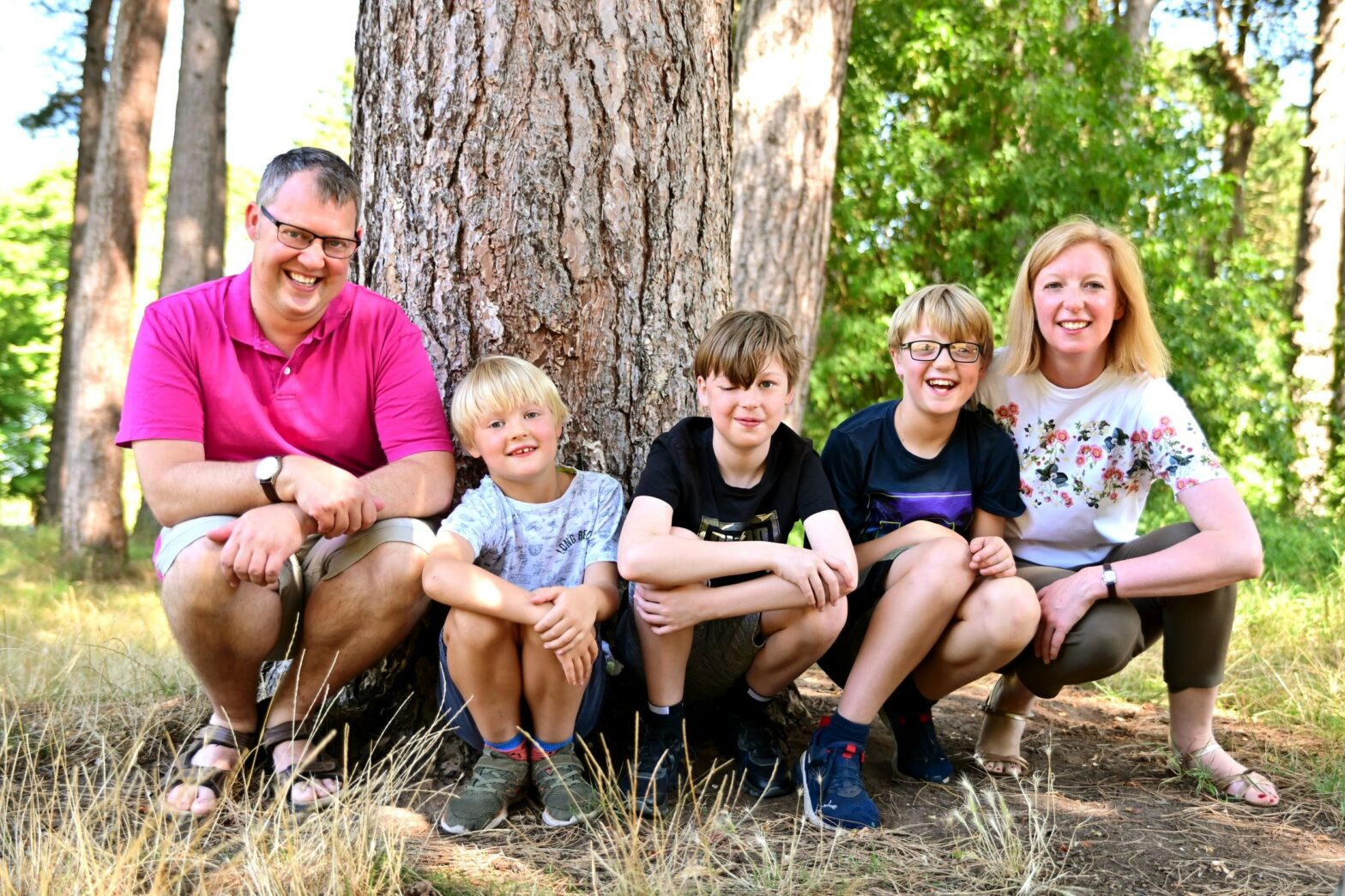Thomas‘s diagnosis

When Becca and Ted’s baby son had a seizure out of the blue, as NHS doctors – albeit in sexual health and obstetrics respectively – they were better placed than most to know what to do.
At first, they thought Thomas was having a febrile convulsion. But when it didn’t stop, they called an ambulance to their home in Liverpool.
Becca recalls: “We had a friend over at the time, so we went to hospital together. I could see that Thomas was weak on one side and thought to myself, there’s something else going on.
“The hospital ended up scanning him and the junior doctor said it looked like he had a big tumour. I remember the doctor crying when giving us this news which was kind of lovely.”
Becca, who was pregnant with her second child at the time, learnt that at just 11 months old, Thomas had an ependymoma – the third most common brain tumour in children.
The treatment involved
Thomas had two surgeries to remove as much of the tumour as possible, followed by chemotherapy and proton therapy.
Becca said: “At the time, proton beam therapy was only available in the US following an NHS assessment of who was suitable. This was the only hope we had, so it was an anxious wait for the decision. We were scared the tumour was going to come back before we flew out to Oklahoma to start treatment. But we made it.
“They did tell us about the potential side effects of proton therapy, but I didn’t think about that at all at the time. At Thomas’s five-year check-up, everything was ok, and I thought we’d got away with it, but Ted was always worried it might come back.”
Becca and her family – which now included three sons – got on with their lives. Then, in March 2020, when Thomas was 10, he had another seizure. It was a precarious time as Covid-19 lockdown restrictions had just started in the UK.
Becca said: “It threw me. The scan showed some kind of glioma. It was very difficult to define, and it had changed. They thought it was a diffuse glioma that was possibly due to proton therapy. It was some consolation that we all had to isolate. It gave us time as a family to all be together.”
Thomas continued going to school for as long as he could. He also went swimming, on family trips and played hockey too until about a month before he died.
Thomas was always the big brother – someone who just got on with things. He dealt with his diagnosis by not letting it get in the way of anything. He started secondary school when he was going through a lot of treatment and losing his hair. But he was so determined to carry on as normal.”
Becca
A lack of information on children’s palliative care

When Thomas was diagnosed as a baby, Becca’s family felt alone. But this time, the oncology and palliative care team at Alder Hey Hospital in Liverpool really looked after them.
Becca said: “We noticed a gradual deterioration in Thomas that was punctuated by steep drops, starting with tiredness and then only being able to go to school for an hour at a time. He had chemotherapy, radiotherapy, then palliative chemo and it wasn’t clear whether he was tired from the disease or the treatment.
“He had a ventricular shunt and then would rally but to a level that was lower than he was at before. I got used to carrying sick bags everywhere we went. That became the new normal. He would just be sick and then carry on, so we got used to doing the same. We were just led by him.
“He’d come downstairs with all his hockey kit and if he wanted to do it, we tried to encourage him as much as we could. But we worried about him overnight and found it very difficult to get any information about what this journey was going to look like.”
Ted added: “I am a planner so mainly I planned holidays and trips away to make those last few months as special as we possibly could. We went to Legoland. We went to stay with friends who had a pool. It was good, but it was sad because we knew he probably wouldn’t be able to do it again. I always had a back-up plan too, like how we’d get home if we had to. Being doctors we felt we could handle various bits of illness if we needed to.”
Comfort for others
Thomas, now 13, didn’t want to go to hospital, so his family knew they’d care for him at home until the very end. They brought his bed downstairs, and discussed and researched how best to care for him as his condition deteriorated. But most palliative care resources were for adults.
“I just remember being so desperate for information,” Becca said. “When you’re caring for someone, you want to do your absolute utmost. So I said to myself, I’m going to be prepared as much as I can.”
One of the dilemmas Becca and Ted faced was whether to tell Thomas how poorly he was, and they decided they would.
Becca explained: “When we told him he was going to die, it was August time and he died in the November. I remember asking him ‘do you want to do anything different?’ and he said no.
After Thomas passed away at home, Becca and Ted created My Dying Child – a podcast and website sharing their experience to help others.
Becca explained: “Our aim is to give people in this horrible situation a little bit of comfort. I talked to another mum I met on social media who said, ‘this is exactly what happened to us.’ It made me think – there is a pattern here.
“It is very hard to talk about your child dying, but it can be strengthening to hear of others going through similar situations. Some parents don’t want to talk about it, and I understand that. But others have said, ‘I wish I’d known that.’”
Thank you to Becca and her family for bravely sharing their experience and for creating additional resources for other families.
You can also find The Brain Tumour Charity’s bereavement support information here:
